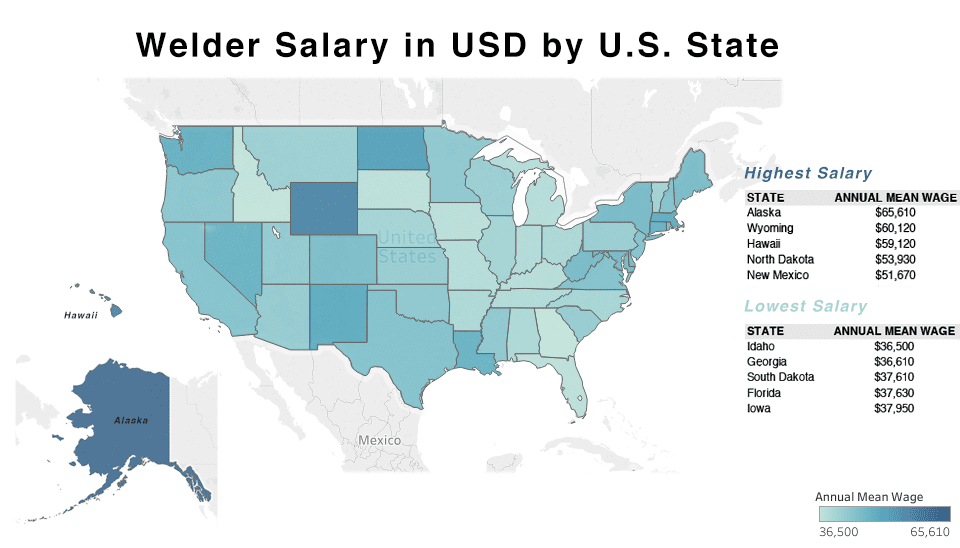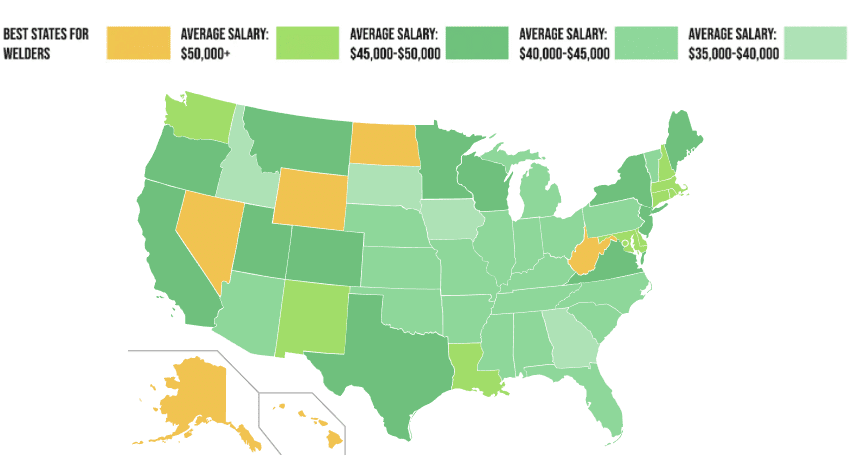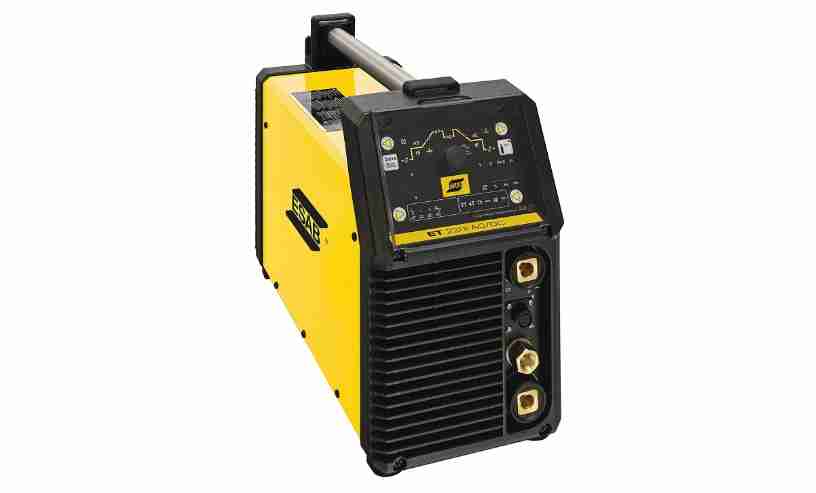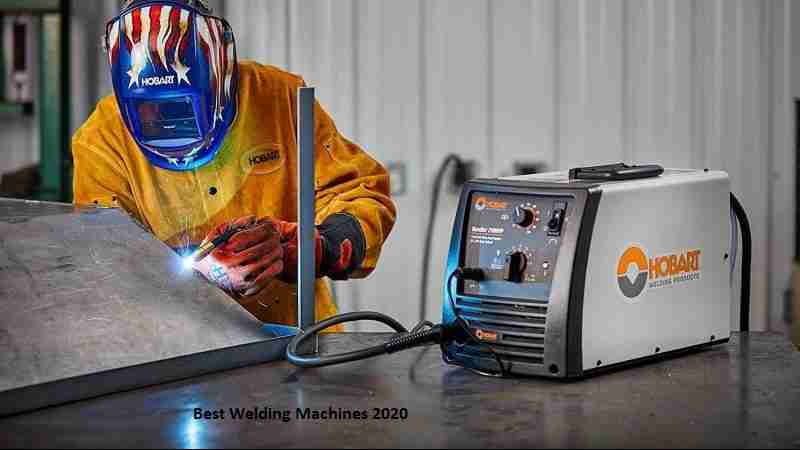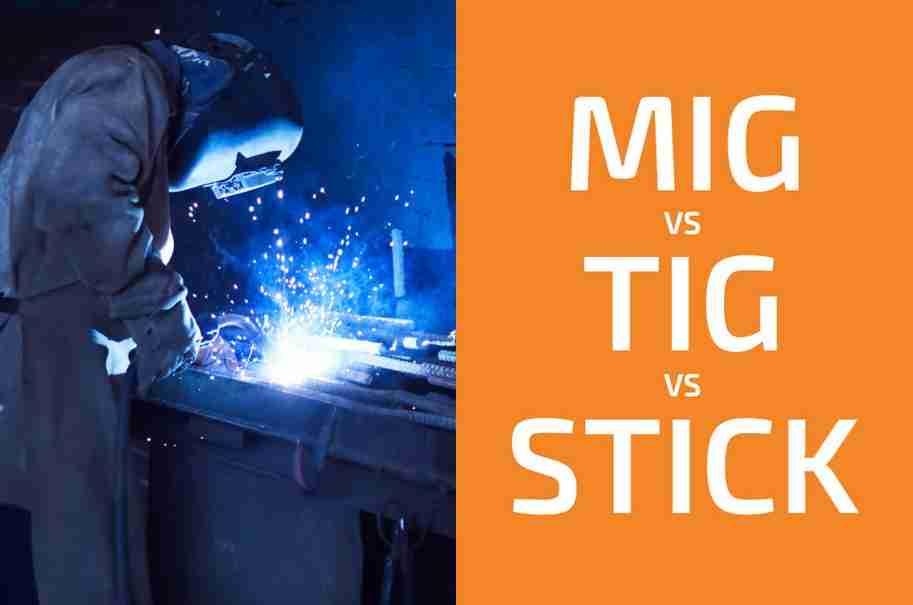If you’re a welder on the hunt for the best-paying state to pursue your career, you’re in luck! This article will reveal the top-paying state for welders in the United States.
Uncovering which state offers the highest salaries for welders will give you valuable insight that can help shape your career choices and potentially boost your earnings.
So, let’s dive into the data and find out which state holds the key to lucrative opportunities for welders!
What State Pays Welders The Most?
If you are a welder or considering a career in welding, one of the factors that may greatly influence your decision is the average salary you can expect to earn.
While several variables come into play regarding welding salaries, such as experience and industry, the state where you work can also have a significant impact.
Some states offer higher salaries for welders compared to others, making it worthwhile to consider where to pursue your career. In this article, we will explore the top states that pay welders the most and delve into the factors affecting welder salaries.
When choosing a career, salary is one of the most important factors to consider.
Welding has been in high demand for years, and it’s no surprise that many people are curious about which state pays welders the most. As a language model AI, I have conducted research to help answer this question.
According to my research, the highest-paid state for welders in 2023 is Massachusetts, with an average salary of $53,090 annually. In Massachusetts, the city that pays welders the most is Woburn, with an average salary of $52,906 annually.
Other states that pay welders will include California, New Jersey, and New York. However, it’s important to note that these states’ living costs are also relatively high.
Therefore, it’s crucial to consider the salary and the cost of living before deciding where to work as a welder.
Average Salary for Welders
Before we delve into the states that pay welders the most, we must have a general understanding of the average salary for welders in the United States.
According to recent data, the average annual salary for welders in the country is around $44,000.
However, it is crucial to note that this figure can vary significantly depending on experience, education, certifications, and location.
Factors Affecting Welder Salaries
Several factors can influence welders’ salaries. One of the primary factors is experience. Typically, welders with more experience earn higher salaries due to their expertise and proven track record of delivering high-quality work.
Additionally, welders with specialized skills or certifications, such as underwater or pipe welding, often command higher wages due to the additional training required.
Another crucial factor is the industry in which welders work. Different industries may have varying demands for welders, with some offering higher salaries than others.
For example, the oil and gas industry, which often requires welding in challenging environments, tends to pay welders higher salaries than other industries.
Lastly, location plays a significant role in determining welder salaries. The cost of living and demand for welders in a particular state can significantly impact wages.
Some states have a higher demand for welders due to industrial growth or unique projects, which can result in higher salaries. Now, let’s explore the top states that pay welders the most.
Understanding Welder Salaries
As a welder, it’s essential to understand how your salary compares to others in your field. Welder salaries can vary greatly depending on several factors, including location, experience, and industry. This section’ll provide an overview of welder salaries, including the national average, annual, and hourly wage.
According to Salary.com, the national average salary for a welder is $46,791 per year. However, this number can vary significantly depending on the state in which you work. For example, the highest-paid state for welders is Massachusetts, with an average salary of $53,090 annually. In contrast, the lowest-paid state is Mississippi, with an average salary of $34,990 annually.
It’s important to note that these figures are based on average annual wages and do not consider other factors such as overtime pay, bonuses, or benefits. Also, wages can be reported in different formats, such as monthly, weekly, or hourly. To better understand your potential earnings as a welder, it’s essential to consider all these factors.
In addition to location, experience can also have a significant impact on welder salaries. As welders gain more experience and develop specialized skills, they may be able to command higher salaries. According to ZipRecruiter, the top 10% of welders earn more than $66,000 annually, while the bottom 10% earn less than $29,000 annually.
Overall, welder salaries can vary widely depending on several factors. By understanding the average salaries in your state and industry and the factors that can impact your earnings, you can make informed decisions about your career path and negotiate for fair compensation.
Welding Careers Across the United States
As a welder, it is essential to know which states offer the best opportunities for employment and the highest salaries. Salary.com says the top three states that pay welders the most are the District of Columbia, California, and New Jersey.
District of Columbia pays the highest average salary of $52,248 annually, 11.32% higher than the national average of $46,791. California and New Jersey follow closely behind with average salaries of $51,205 and $50,736 per year, respectively.
In addition to high salaries, it is essential to consider job opportunities and working hours. According to Zippia, Maine is the best state for welder jobs, with the highest employment rate and average annual wage of $45,420. Other states that offer high employment rates and wages for welders include Alaska, North Dakota, and Wyoming.
Regarding benefits and retirement, it is essential to research the specific companies and organizations that offer these perks. Some companies may offer health insurance, retirement plans, and paid time off, while others may not.
It is essential to consider these factors when looking for employment opportunities as a welder.
Overall, the welding career field offers many job opportunities across the United States. Researching and comparing salaries, job opportunities, and benefits is essential before choosing a state or company to work for.
With the proper research and preparation, welders can find rewarding and fulfilling careers in the welding industry.
Top Paying States for Welders
As a welder, it’s essential to know which states pay the most so you can make an informed decision about where to work.
After researching, I’ve compiled a list of the top-paying states for welders in 2023.
Alaska
Alaska is the highest-paying state for welders, with an average salary of $64,380 per year. Welders in Anchorage, AK, earn even more, with an average salary of $68,400 per year. However, remember that the cost of living in Alaska is higher than the national average.
Massachusetts
Massachusetts is the second highest-paying state for welders, with an average salary of $53,090 per year. Welders in Woburn, MA, earned the most, with an average salary of $52,906 per year.
California
California is the third highest-paying state for welders, with an average salary of $52,080 per year. Welders in San Francisco, CA, earn the most, with an average salary of $58,950 per year.
Louisiana
Louisiana is the fourth highest-paying state for welders, with an average salary of $50,840 annually. Baton Rouge, LA Welders earn the most, with an average salary of $54,160 per year.
Texas
Texas is the fifth highest-paying state for welders, with an average salary of $49,930 annually. Welders in Houston, TX, earn the most, with an average salary of $51,830 annually.
Other states that pay well for welders include Arkansas, North Dakota, Wyoming, New Jersey, Maine, Rhode Island, Delaware, Washington, Oregon, Hawaii, West Virginia, Nevada, Tennessee, Vermont, Nebraska, Iowa, South Dakota, New Mexico, Pennsylvania, Ohio, New York, and the District of Columbia.
Remember that these salaries are averages, and the actual salary you can expect to earn may vary based on factors such as experience, certifications, and the specific employer you work for.
Influence of Cost of Living on Welder Salaries
As a welder, it’s essential to consider the cost of living (CoL) in the state where you plan to work. The CoL can significantly impact your salary and overall quality of life. In some states, the high CoL can offset the higher welder salary. Therefore, it’s essential to examine how the CoL affects welder salaries in different states.
According to Lightcast, when welder earnings are adjusted for CoL, New Mexico takes the top spot, with the top 10th percentile of welders making $45.65/hour before CoL adjustment and $44.19 after CoL adjustment. Even though New Mexico has a lower average annual salary for welders compared to other states, the lower CoL makes up for it.
On the other hand, states like California, New York, and Massachusetts have higher average annual salaries for welders, according to Salary.com. However, the high CoLs in these states can offset the higher salaries. For instance, Massachusetts has the highest average salary for welders at $53,090 per year, but the cost of living in Massachusetts is also high.
It’s also worth noting that states with high salaries for welders may not necessarily have a higher CoL. For example, according to ZipRecruiter, South Dakota has an average annual salary of $43,376 for welders, which is lower than some other states. However, South Dakota has a lower CoL than other states, which can compensate for the lower salary.
In summary, the CoL can significantly impact welder salaries in different states. It’s essential to consider the CoL when evaluating the salary of a welding job offer. While some states may offer higher salaries, the higher CoL can offset the higher pay. Conversely, some states may offer lower salaries, but the lower CoL can compensate for it.
Role of Industry in Determining Welder Salaries
As with any profession, the industry in which a welder works plays a significant role in determining their salary. Industries that require welding services often have different demands, working conditions, and skill requirements. Therefore, the wages for welders can vary widely depending on the industry.
According to the BLS, the top-paying industries for welders in the United States are the pipeline transportation of crude oil, industrial and aerospace products, and parts manufacturing industries. These industries pay an average annual wage of $67,300, $54,480, and $53,660, respectively.
In contrast, the construction and ship and boat building industries are among the lowest-paying industries for welders, with average annual wages of $45,170 and $44,540, respectively. However, it is essential to note that these industries often have different working conditions and skill requirements than the higher-paying industries.
Location is also a significant factor in determining welder salaries. For example, Massachusetts is the highest-paying state for welders, with an average annual wage of $66,760, while Mississippi is the lowest-paying state, with an average annual wage of $36,680. However, it is essential to consider the cost of living in each state when comparing salaries.
Overall, the industry in which a welder works plays a crucial role in determining their salary. Welders who work in industries with high demand and specialized skills can expect to earn higher wages than those who work in industries with lower demand and less specialized skills.
Demand and Training for Welders
As a welder, it is essential to understand the demand for your skills in the job market. According to WaterWelders, states with a high concentration of welding jobs, such as Maine, tend to have a higher demand for qualified workers. Additionally, states with a high cost of living and a high demand for welders, such as Wyoming and North Dakota, offer higher pay for welders.
In addition to understanding demand, it is also essential to have the necessary training and certifications to be successful in the welding industry. Welding requires high skill and precision, and proper training can help ensure you have the necessary skills to succeed. Many vocational schools and community colleges offer welding programs that can provide the necessary training and certifications to become a professional welder.
It is also important to note that welding can be physically demanding and lead to repetitive stress injuries (RSI) if proper safety measures are not taken. According to the Occupational Safety and Health Administration (OSHA), common RSI injuries for welders include carpal tunnel syndrome and tendonitis. Proper training and safety measures can help prevent these injuries and ensure you can continue working safely and effectively.
Overall, understanding the demand for welding jobs and having the necessary training and safety measures in place can help ensure success in the welding industry. As a welder, staying current on industry trends and advancements in technology and infrastructure is essential to remain competitive in the job market.
Worst States for Welders
As per my research, Florida is the worst state for welders in 2023. The average annual salary for welders in Florida is $36,190, which is lower than the national average. Welders in Florida earn 12.8% less than the national average. Additionally, the availability of welding jobs in Florida is also low compared to other states. The state has a concentration of 0.69 welding jobs per thousand jobs, which is lower than the national average of 1.05.
Another state that is not ideal for welders is Nevada. The average annual salary for welders in Nevada is $40,040, which is lower than the national average. Welders in Nevada earn 6.2% less than the national average. The state also has a low concentration of welding jobs, with only 0.74 per thousand jobs.
Mississippi is also not a great state for welders. The average annual salary for welders in Mississippi is $37,100, which is lower than the national average. Welders in Mississippi earn 11.1% less than the national average. The state has a concentration of 0.94 welding jobs per thousand jobs, which is lower than the national average.
Lastly, Alabama is not an ideal state for welders. The average annual salary for welders in Alabama is $38,420, which is lower than the national average. Welders in Alabama earn 8.6% less than the national average. The state has a concentration of 0.97 welding jobs per thousand jobs, which is lower than the national average.
These states may not be the best option for welders looking for high-paying jobs with a good concentration of welding jobs.
Role of Experience in Welder Salaries
As a welder gains more experience, they can expect an increase in their salary. According to the Bureau of Labor Statistics, “welders with experience and certification should have the best job opportunities.”
In general, entry-level welders can expect to earn less than those with several years of experience. However, the experience required to earn a higher salary can vary by state. For example, in Massachusetts, the average salary for a welder with 1-3 years of experience is $48,000 per year, while a welder with 10-15 years of experience can expect to earn an average of $62,000 per year.
It’s important to note that experience isn’t the only factor that can impact a welder’s salary. Other factors such as location, industry, and education can also play a role. For example, welders in the aerospace industry may earn more than those in construction.
In addition to experience, welders can increase their earning potential by obtaining certifications in specialized welding techniques. For example, a welder who is certified in Tungsten Inert Gas (TIG) welding may be able to command a higher salary than one who is only certified in Shielded Metal Arc Welding (SMAW).
Overall, experience is an essential factor in determining a welder’s salary. As a welder gains more experience and expertise, they can expect to see an increase in their earning potential.
Career Services for Welders
Finding job opportunities and advancing your career can be challenging as a welder. That’s where career services come in. These services can help you with job placement, training, and networking opportunities.
Here are some career services that can benefit welders:
Employment Agencies
Employment agencies can help you find welding jobs that match your skills and experience. These agencies work with employers to fill open positions and can connect you with job opportunities that you may not have found on your own. Some popular welder employment agencies include Aerotek, Tradesmen International, and Welding Jobs.
Apprenticeships
Apprenticeships are a great way to gain hands-on experience while learning the trade. These programs typically last 3-4 years and provide on-the-job training and classroom instruction. Apprenticeships can also lead to certifications that can help you advance your career. The Ironworkers Union and the International Brotherhood of Boilermakers are just a few organizations offering welding apprenticeships.
Professional Associations
Joining a professional association can help you network with other welders and stay up-to-date on industry news and trends. These associations often offer training and certification programs that can help you advance your career. The American Welding Society and the National Center for Construction Education and Research are two popular associations for welders.
Vocational Schools and Community Colleges
Vocational schools and community colleges offer welding programs to help you gain the skills and certifications needed to advance your career. These programs typically last 6-12 months and provide hands-on training in welding techniques and safety. Some examples of schools that offer welding programs include Lincoln Tech, Tulsa Welding School, and the College of Southern Nevada.
Utilizing these career services can increase your chances of finding job opportunities and advancing your welding career.
Welding in Specific Locations
Regarding welding jobs, location is crucial in determining the pay scale. Some states offer higher salaries than others, and some cities pay even more. Here are some specific locations that offer the highest pay for welders:
Houston, Texas
Houston has been called the welding jobs capital of the United States, and it’s not hard to see why. According to Tulsa Welding School, Houston has the highest level of employment of welders in a metropolitan area. The average salary for a welder in Houston is around $47,000 per year, which is higher than the national average.
Baton Rouge, Louisiana
Baton Rouge is another city that offers high pay for welders. According to Zippia, Louisiana is one of the top states for welders, and Baton Rouge is one of the highest-paying cities in the state. The average salary for a welder in Baton Rouge is around $47,000 per year, similar to the average salary in Houston.
Massachusetts
Massachusetts is the place to be if you’re looking for a high-paying state for welders. According to Zippia, Massachusetts is the highest-paid state for welders, with an average salary of $53,090 annually. The city of Woburn, MA, pays welders the most, with an average salary of $52,906 per year.
Maine
Maine is another state that offers high pay for welders. According to WaterWelders, Maine has the country’s highest concentration of welding jobs. Welders in this state earn a high annual average salary compared to other states in the US.
Overall, these locations offer some of the highest pay for welders in the country. However, it’s important to note that the cost of living in these areas may also be higher than in other locations. Considering all factors is essential when deciding where to pursue a welding career.
Welding and the National Economy
Welding is an essential part of the manufacturing industry in the United States. It is a critical process that involves joining two or more metals using heat and pressure. Welding is used in various industries, including aerospace, automotive, construction, and shipbuilding. It is also used to repair and maintain infrastructure, such as bridges, pipelines, and buildings.
According to the Bureau of Labor Statistics, there were approximately 404,800 welders, cutters, solderers, and brazers in the United States in 2020. The employment of welders is projected to grow by 3 percent from 2020 to 2030. This growth is slower than the average for all occupations. However, the demand for welders is expected to increase as the country’s infrastructure ages and needs repair.
Welding is an essential contributor to the national economy. The welding industry generates billions of dollars in revenue each year. In 2020, the welding industry’s revenue in the United States was approximately $22 billion. Furthermore, the welding industry employs millions of people across the country. The industry provides jobs for welders, engineers, technicians, and other professionals.
Research shows that the welding industry positively impacts the country’s economy. A study by the American Welding Society found that every dollar invested in welding generates a return of $5.28 to the national economy. The study also found that the welding industry creates jobs and stimulates economic growth.
In conclusion, welding is a critical process contributing significantly to the national economy. It is an essential part of many industries, and its demand is expected to grow in the coming years. The welding industry generates billions of dollars in revenue and provides jobs for millions of people across the country.
Frequently Asked Questions
Which states offer the highest salaries for welders?
Welders can earn different salaries depending on the state they work in. Some states offer higher salaries than others. According to Zippia, Massachusetts is the state that pays the highest salaries for welders. Other states with high salaries for welders include New Jersey, Alaska, Delaware, and Wyoming.
What are the top-paying states for welders in the US?
The top-paying states for welders in the US offer the highest salaries. According to ZipRecruiter, New York, Vermont, and New Jersey are the top three states with the highest average salaries for welders. Other states with high salaries for welders include Massachusetts, Alaska, and Connecticut.
Where can welders find the best pay rates in the country?
Welders can find the best pay rates in the country by looking for jobs in states that offer high salaries. According to TWS, Texas has the highest level of employment than any other state, making it an excellent place to start. Other states with high employment levels for welders include California, Ohio, Pennsylvania, and Illinois.
What states have the most demand for welders?
Some states have a higher demand for welders than others. According to TWS, Texas has the highest level of employment for welders in the country. Other states with high welder demand include California, Ohio, Pennsylvania, and Illinois.
What are the best locations for welders to find high-paying jobs?
The best locations for welders to find high-paying jobs are those with high salaries and a high demand for welders. According to Zippia, Massachusetts, New Jersey, Alaska, Delaware, and Wyoming are some states that offer high salaries for welders. According to TWS, Texas, California, Ohio, Pennsylvania, and Illinois are some states with high demand for welders.
Is it possible for welders to earn over 100k per year in certain states?
Yes, welders can earn over $100,000 per year in certain states. According to Ricky’s Welding Equipment, Alaska is the state that offers the highest salaries for welders. Welders who work in this state can earn over $100,000 per year.
Other states that offer high salaries for welders include Hawaii, North Dakota, and Wyoming. However, it’s important to note that earning such high salaries as a welder usually requires significant experience and expertise.



